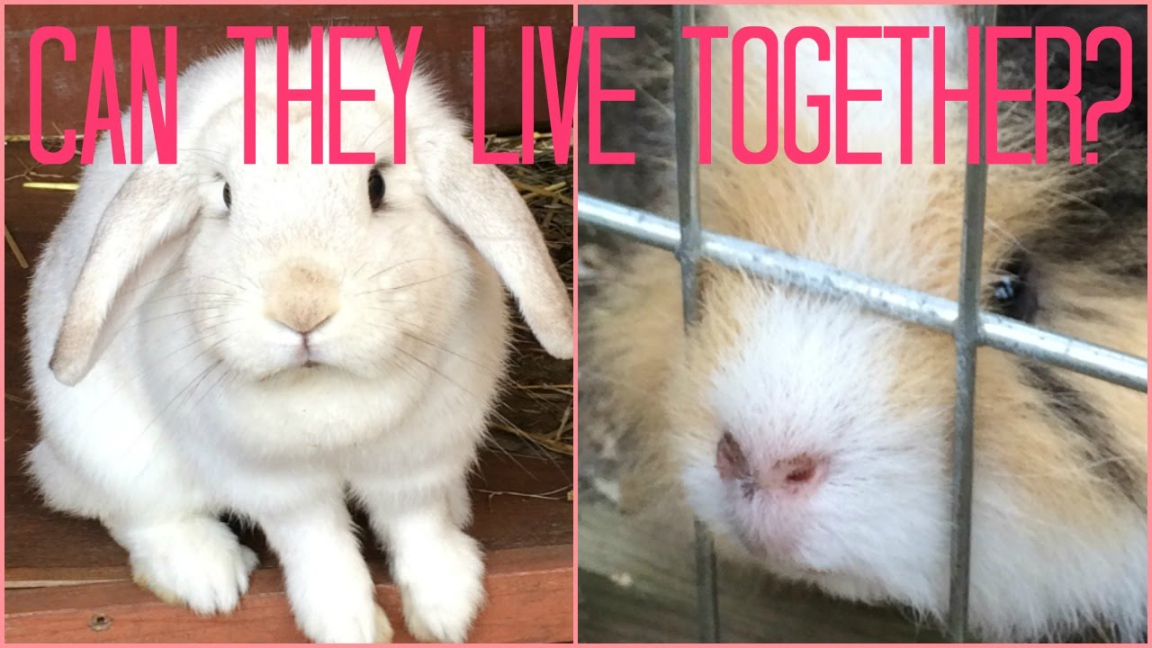Can Rabbits Live With Guinea Pigs?
Many pet owners wonder whether rabbits and guinea pigs can live together harmoniously. Both rabbits and guinea pigs are popular small pets that are known for their gentle nature and cute appearances. While they may seem like they would make great companions, there are several factors to consider before deciding to house rabbits and guinea pigs together. Let’s take a closer look at whether rabbits and guinea pigs can live together and what you need to know.

Compatibility and Behavior Differences
Rabbits and guinea pigs have different communication styles and behavior patterns. Rabbits are generally more territorial and can exhibit aggressive behavior towards other animals, especially if they feel their space is being invaded. Guinea pigs, on the other hand, are more social and are known to enjoy the company of other guinea pigs.
Rabbits can cause harm to guinea pigs. Due to the size difference between rabbits and guinea pigs, there is a risk of injury if a rabbit were to become aggressive towards a guinea pig. Rabbits have strong hind legs and sharp claws, which can cause serious harm to a smaller guinea pig.
Communication barriers. Rabbits and guinea pigs communicate in different ways, which can lead to misunderstandings and potential conflict. For example, rabbits may interpret guinea pigs’ vocalizations as a sign of distress or aggression, leading to defensive behavior.
Housing Considerations
Rabbits and guinea pigs have different housing requirements. While both require adequate space to move around, guinea pigs have different habitat needs compared to rabbits. Guinea pigs need shelters or hideouts to feel safe, while rabbits prefer a more open space. Housing them together may cause stress to one or both animals if their individual needs are not met.
Food and diet differences. Rabbits and guinea pigs have different nutritional requirements. Rabbits require a diet rich in fiber, while guinea pigs need additional vitamin C. Feeding them the same diet may lead to health issues for one or both animals.
Health Risks
Guinea pigs are more susceptible to diseases carried by rabbits. Rabbits can carry diseases that are harmful to guinea pigs, such as Bordetella bronchiseptica and Pasteurella multocida. In a shared living environment, there is an increased risk of disease transmission between the two species.
Stress and behavioral problems. Housing rabbits and guinea pigs together can cause stress and anxiety for both animals. This can lead to behavioral problems, such as increased aggression, reduced appetite, and even self-harm.
FAQs about Rabbits and Guinea Pigs Living Together
1. Can rabbits and guinea pigs play together?
No, it is not recommended to let rabbits and guinea pigs play together unsupervised. Rabbits can become aggressive towards guinea pigs, which can result in injury. Always monitor interactions between the two species.
2. Can rabbits and guinea pigs share the same cage?
It is best to provide separate living spaces for rabbits and guinea pigs. They have different housing and socialization needs, and housing them together can lead to stress and potential harm.
3. Can rabbits and guinea pigs at least see each other?
While it is possible for rabbits and guinea pigs to see each other from separate enclosures, it is important to ensure that they cannot physically interact. This prevents any potential harm or stress to either animal.
4. Are there any exceptions to housing rabbits and guinea pigs together?
In some rare cases, rabbits and guinea pigs that have grown up together from a young age may develop a bond and coexist peacefully. However, this is the exception rather than the norm, and careful monitoring is still necessary.
In conclusion, it is generally not recommended to house rabbits and guinea pigs together due to their differences in behavior, communication, and housing needs. The potential risks of injury, stress, and disease transmission outweigh the benefits of cohabitation. It is best to provide separate living spaces and companionship for each species to ensure their well-being and happiness.
Related Articles…
Copyright Notice:
This website utilizes images found online, all copyrights are retained by their original owners. If you would like an image removed, kindly contact us.